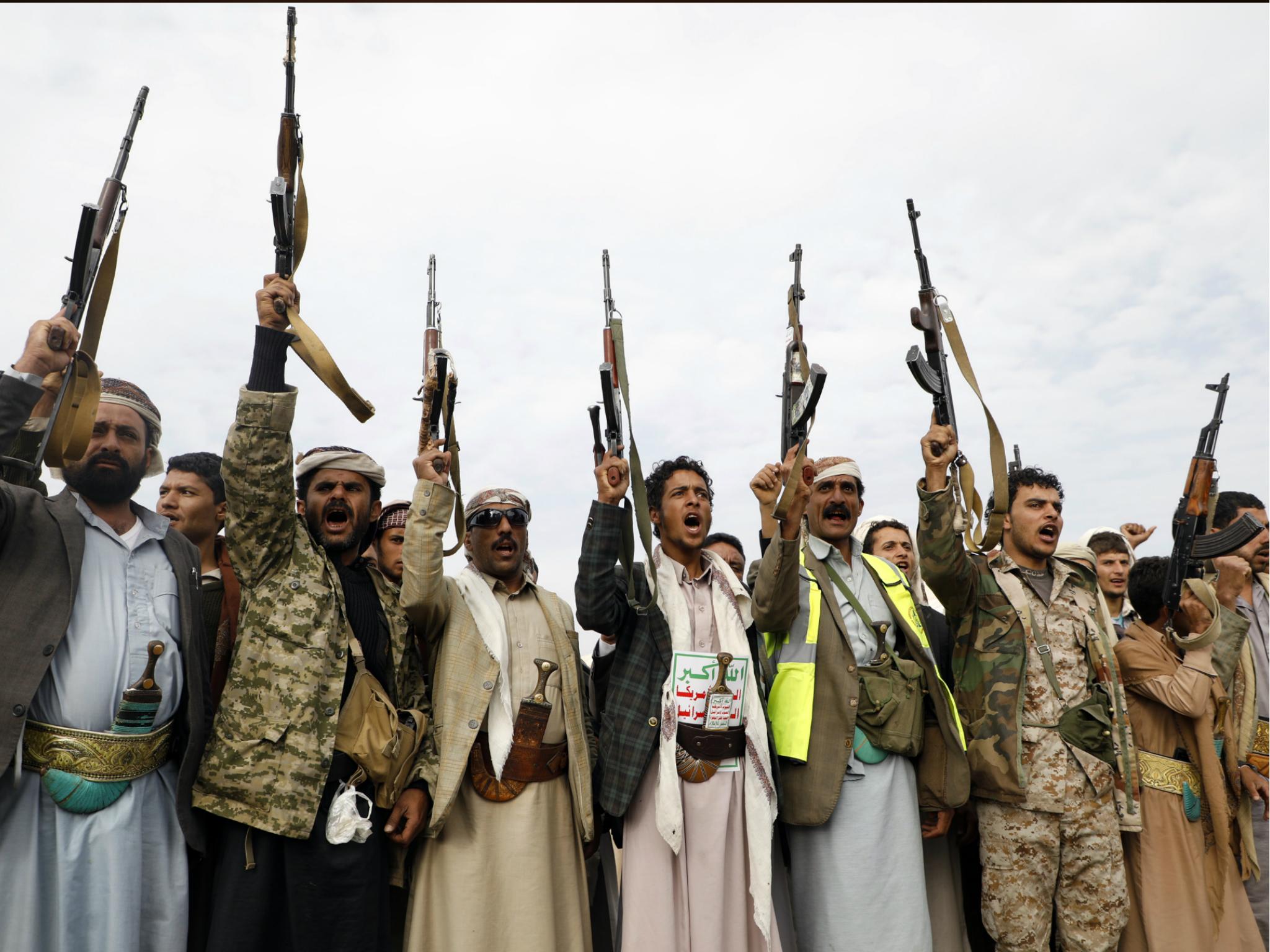Yemen missile attack: Weapon fired by Houthi rebels at Saudi capital was Iranian, say US officials
US Air Force officials have not confirmed the type of missile used as yet

The ballistic missile fired by Yemeni rebels that targeted the Saudi Arabia capital was from Iran and bore “Iranian markings,” a top US Air Force official in the Middle East has said.
Lieutenant General Jeffrey L Harrigian, who oversees the Air Forces Central Command in Qatar, made the comments at a news conference in Dubai.
Mr Harrigian said authorities were investigating how the missile was smuggled into Yemen amid a Saudi-led coalition controlling the country’s airspace, ports, and borders.
After the strike near Riyadh on 4 November, Saudi Arabia’s Foreign Ministry said investigators examining the remains of the rocket found evidence proving “the role of Iranian regime in manufacturing them.”
More detail was not given, though the ministry also mentioned it found similar evidence after a 22 July missile launch however a rebel spokesperson told Al Jazeera that it was a Burkan 2-H missile - a Scud-type missile with a range of more than 800km.
French President Emmanuel Macron also said this week that the missile was "obviously" Iranian.
Nikki Haley, the US ambassador to the United Nations, said in a statement earlier in the week that the July launch involved an Iranian Qiam-1, a liquid-fueled, short-range Scud missile variant.
Iran used a Qiam-1 in combat for the first time in June when it targeted Isis militants in Syria in retaliation for twin militant attacks in Tehran.
Mr Harrigian declined to offer any specifics on what type of missile they believed was used most recently.
Iran has denied the allegations it provided missiles to the Houthi rebels and what the Saudi coalition called a "a clear act of aggression" on the part of Iran.
The 4 November attack prompted Saudi Arabia to close all ports, roads, and the air space in and out of Yemen.
The Saudi-led coalition also sent a slew of missiles into the Yemeni capital of Sanaa several hours after the attack on the Riyadh airport.
The war in the region's poorest country began in 2014 when Houthi rebels took control of Sanaa and pushed south towards Aden.
Saudi Arabia and its coalition, fearing that the rebels were being backed by its rival Iran, then launched a series of air strikes to restore control for the government of President Abd-Rabbu Mansour Hadi.
Since the air strikes began, at least 10,000 people have died as a result and 40,000 have been wounded, Al Jazeera reported.
Yemen is also facing an unprecedented famine and Saudi blockades on ports have exacerbated the dire situation, according to UN officials.
UN head of humanitarian affairs Mark Lowcock said: "it will not be like the famine that we saw in South Sudan earlier in the year, where tens of thousands of people were affected. It will not be like the famine which cost 250,000 people their lives in Somalia in 2011. It will be the largest famine the world has seen for many decades, with millions of victims."
The World Health Organisation has also confirmed that the country is facing a massive cholera outbreak, particularly affecting children; nearly a million reported cases are expected by the end of the year.
Join our commenting forum
Join thought-provoking conversations, follow other Independent readers and see their replies
Comments